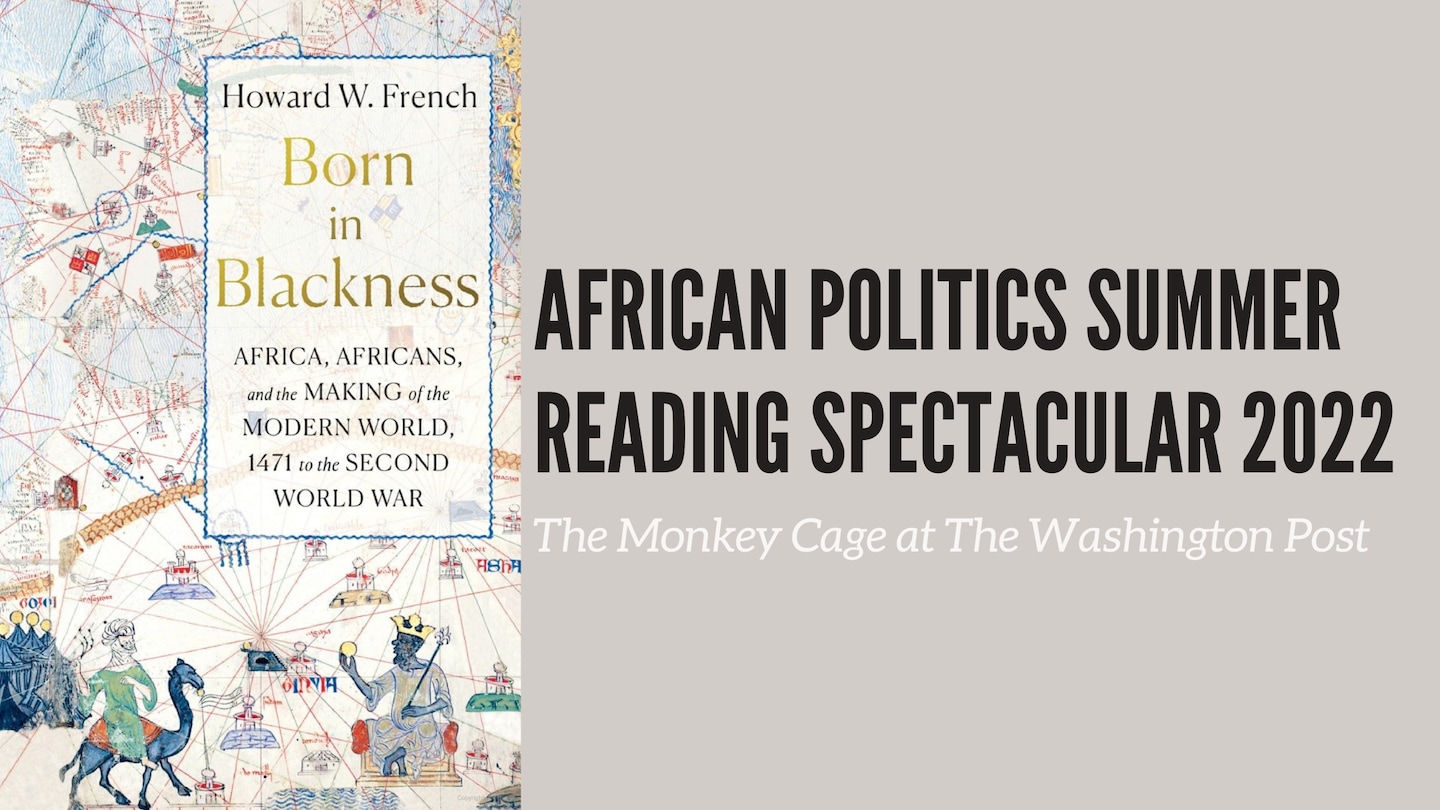
Placeholder while article actions load
Let me start with the takeaway: “Born in Blackness: Africa, Africans, and the Making of the Modern World, 1471 to the Second World War” is a tour de force, so much so that it’s almost impossible to write about it without lapsing into hyperbole. Wp Get the full experience. Choose your plan ArrowRight Early in the book, author Howard W. French tells the story of Mansa Musa, depicted on the book’s cover. In the early 14th century, Musa was the great king of the Mali Empire — and purportedly the richest man who has ever lived. His 1324 pilgrimage to Mecca is famous for, among other things, his entourage and him spending so much gold when passing through Cairo that they caused massive inflation in the local economy, a crisis from which it took years to recover.
This story, French argues, “set the creation of an Atlantic world into motion.” European explorers were intrigued by tales of an African king whose riches outstripped that of any their monarchs. Thus, French contends, began the Age of Discovery, a time of searching for mythological cities of gold that would drive Europeans to seek to dominate the world — not only in Africa, but across the Atlantic into the “New World.”
He then spends 400-plus compelling pages explaining everything that happened next: the European encounter with the Americas; the consequences of that encounter for Indigenous populations; the creation of lifelong, chattel slavery of African peoples as a mechanism by Europeans to replace the exploited, unpaid labor of the Indigenous populations that their guns and diseases destroyed; capitalism and the Industrial Revolution, and the growth of countless other modern institutions, from the insurance industry to the prison-industrial complex.
French brings a journalist’s writing skills and eye to his subject, building a comprehensive and compelling argument that Africa and Africans were central to the construction of the modern world. Drawing on both primary, archival sources and the research of hundreds of scholars and thinkers, French builds on that previous scholarship to insist this history cannot be ignored. About early 20th-century historian and later prime minister of Trinidad and Tobago Eric Williams, he writes:
In their traditional recounting of the history of the modern world, the scholarly establishments of Western countries seldom invested serious attention to the role of Africa or of Africans, until a young doctoral candidate [Williams] from Trinidad had the temerity to argue that without Africa, and the slave plantation agriculture of the Caribbean that derived from it, there would never have been the kind of explosion of wealth that the West enjoyed in the nineteenth century, nor such early or rapid industrialization.
On top of meticulous research into primary and secondary sources, French builds the narrative with accounts of (and pictures from!) his travels to many important sites. His exploration of São Tomé, an island off the African coast on which Europeans first established the plantation complex — the slave labor prison camps that would come to dominate Caribbean, Brazilian and Southern American agriculture — is particularly compelling. Likewise, French’s vivid description of the ruins of an old sugar cane plantation complex in Barbados brings to life his descriptions of what the kidnapped and enslaved Africans who were forced to work there endured.
A potential critique of “Born in Blackness” is that, aside from the travel narratives, there is nothing new here. French acknowledges his debt to scholars — especially Black scholars from Africa, the Caribbean and the United States — throughout the text. And certainly, there is little in the book that is not already well known to scholars of the Atlantic world.
But to make such an argument misses the point. Most people are not scholars of the Atlantic world. Because he comes to the story with a journalist’s eye — and, just as important, with a journalist’s ability to write in clear, compelling language that anyone can understand — French’s book is invaluable. “Born in Blackness” takes these narratives that have mostly been limited to scholars and graduate students and makes them accessible to a broad audience, from undergraduates assigned a few chapters for a class to people who will pick up a popular history book that looks interesting at their local bookstore.
“Born in Blackness” is a compelling, impossible-to-forget read. This is the book for those who say they “don’t know anything about Africa” and want to learn more. But those readers will quickly learn they have known many of these things all along. French’s gift is to show us how.
GiftOutline Gift Article







